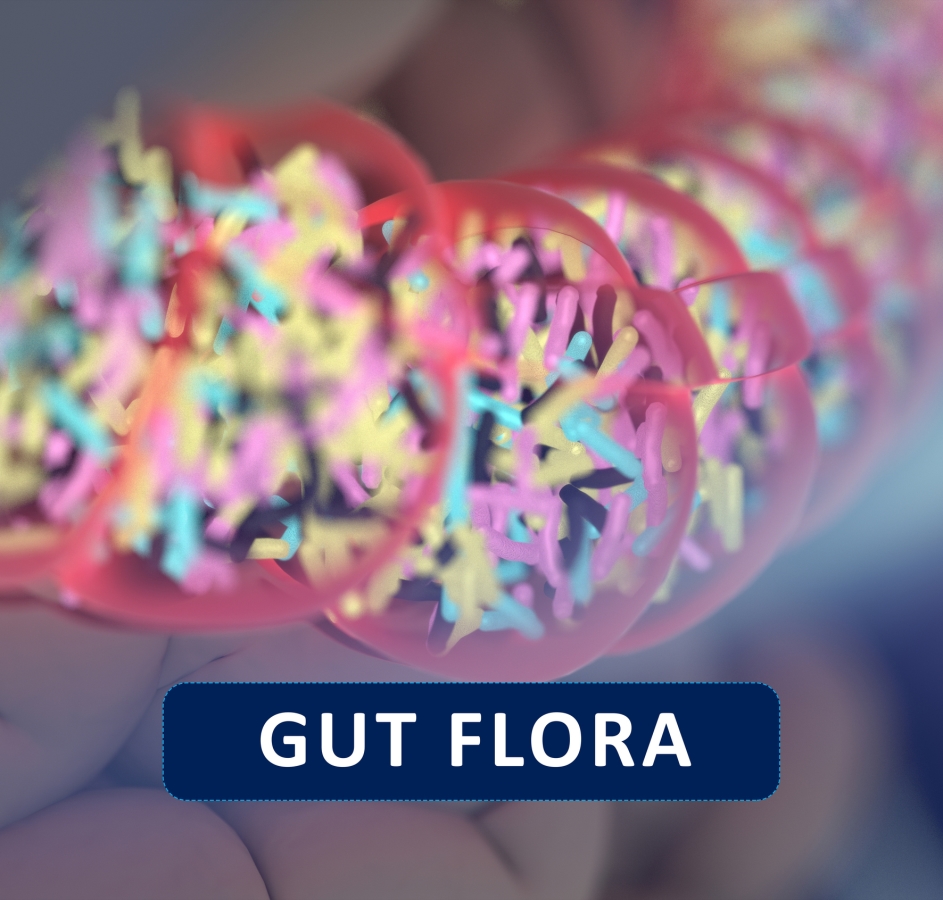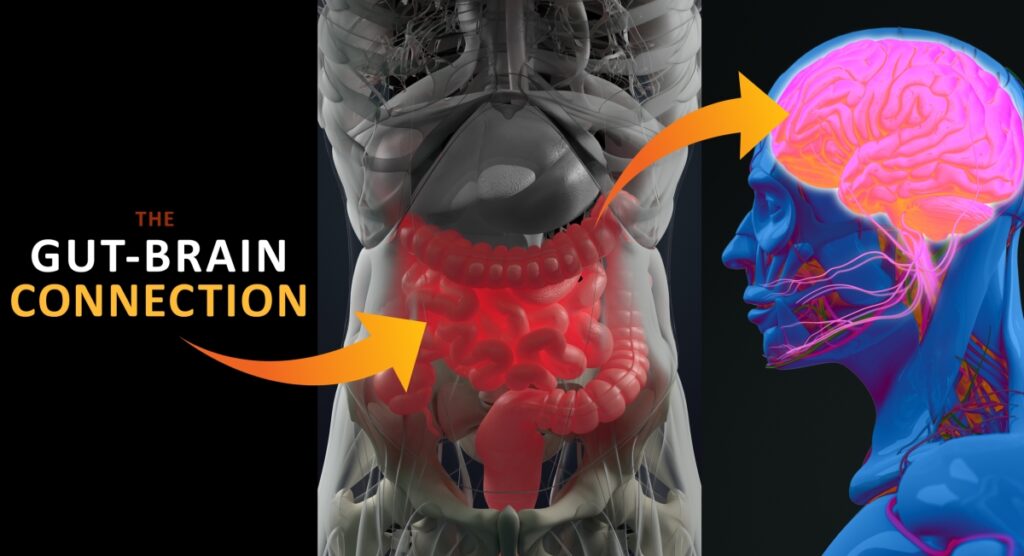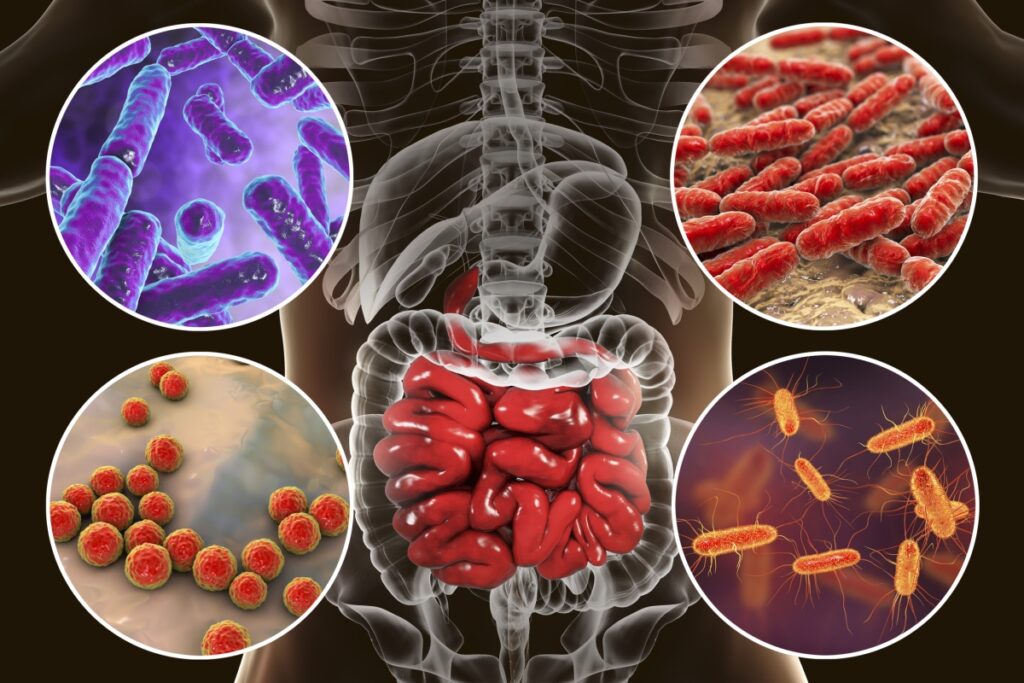
Exploring the Lactobacillus Plantarum Benefits from Probiotics


Exploring the Lactobacillus Plantarum Benefits from Probiotics
What Is Lactobacillus Plantarum?
Lactobacillus plantarum (L. plantarum) is a lactic acid bacteria that does not produce gas. It’s a popular strain in dairy, meat, and vegetable fermentation and as a supplemental probiotic. As a probiotic, it is fantastic because of its diverse effects on gut health, metabolic diseases, and the brain.
Lactobacillus Plantarum Benefits
Promote A Healthy Gut Flora
Not all probiotics effectively promote a healthy gut flora. L. plantarum is a special strain because it increases gut flora diversity and reduces bad bacteria. Gut flora diversity is important because when you have more diverse gut flora, your gut flora becomes more resistant to infections. Not only will your gut bacteria become more robust, but it also prevents pathogens from invading your gut flora.

Promotes A Balanced Immune Response
Prebiotics and probiotics work together to optimize your health.
When your body encounters pathogens, L. plantarum can enhance immune response. T cells are white blood cells that grow up in the thymus..
Most T cells help kill pathogens and infected cells. However, there is a special type of T cell called regulatory T cells that ensures the immune responses shut off after an infection, preventing chronic inflammation.
Regulatory T cells also keep your immune system from attacking your own cells, foods, and seemingly harmless allergens. Through local and systemic interactions with the mucosal immune system, probiotics such as L. plantarum boosts regulatory T cells.
Regulatory T cells may help reduce leaky gut and gut inflammation, along with autoimmunity and allergies.
Sharpens Your Memory
Aging is a natural process that we all have to face one day. With age, our memory might not be as sharp as it once was. While aging is unavoidable, there are many things you can do to keep your brain young and sharp. L. plantarum may support healthy brain function, especially in the context of aging.
In a placebo-controlled clinical trial of 100 individuals with mild cognitive impairment, the probiotic group received 800 mg of an L. plantarum supplement for 12 weeks. Compared to the placebo group, the probiotic group exhibited longer attention span.
Following the probiotic, subjects had increased serum BDNF levels, improving their cognitive function. This clinical trial showed that L. plantarum can improve cognitive function, attention span, and BDNF levels.

Reduces Aluminum Absorption
The most common metal in the earth’s crust is aluminum. Aluminum exposure can have many negative effects on both people and animals. By using L. plantarum, you can decrease aluminum absorption and protect yourself from aluminum toxicity.
This study looked at how L. plantarum can help protect mice from aluminum poisoning. 40 mice were divided into four groups: control, aluminum only, aluminum and L. plantarum, and aluminum with deferiprone (DFP).
Treatment with L. plantarum resulted in a substantial drop in death rates, as well as a decrease in intestinal aluminum absorption and aluminum buildup in tissues. L. plantarum therapy has the potential to be a therapeutic dietary approach against acute aluminum poisoning.
Cadmium is a toxic element found in the Earth’s crust that is steadily making its way into human food. Mice ate an oral cadmium supplement as well as a dose of L. plantarum in this investigation. According to the findings, the probiotic reduced oxidative stress and the amount of cadmium absorbed in the gut.
L. plantarum has a high capacity for copper binding and tolerance to copper ions. This study looked at its ability to protect mice from copper toxicity. Mice were placed into two groups: intervention and therapy. Mice in the intervention group ingested L. plantarum and copper together, while mice in the treatment group took only L. plantarum after 4 weeks of copper exposure.
The results showed that L. plantarum therapy significantly raised the copper content in stools, promoting copper excretion, reducing copper buildup in tissues, and reversing oxidative stress caused by copper exposure.

Improves Iron Absorption
Iron deficiency is common, particularly among young women due to menstruation, low stomach acid, and because iron is difficult to absorb. By improving gut barrier health, L. plantarum may improve iron absorption.
The participants of this study are healthy women of reproductive age. Eleven women consumed either a 6.76 oz fruit drink with L. plantarum or a 6.76 oz fruit drink without the probiotic in two trials.
The first trial used 10^9 colony-forming units (CFU) of L. plantarum, whereas the second used 10^10 CFU. The probiotic and placebo beverages both included 5 mg of iron in the form of ferrous lactate. The difference in iron absorption between the 10^9 and 10^10 CFU beverages was not statistically significant. L. plantarum can boost iron absorption by around 50%.
Here is our best probiotic supplement that you should check out.
Support Heart Health
L. plantarum may promote healthy blood lipids. This is a controlled, randomized, double-blind trial with 60 participants (30 in the placebo group and 30 in the probiotic group) aged 18–65. For 12 weeks, the probiotic group got one capsule per day containing 1·2 × 10(9) CFU of L. plantarum.
When compared to the placebo group, the L. plantarum group had healthier blood lipids after 12 weeks of ingestion. The results demonstrate that L. plantarum is beneficial to cardiovascular health.

L. plantarum supplementation promotes healthy systolic and diastolic blood pressure.
Short-chain fatty acids produced by bacterial fermentation of fiber in the human colon may promote healthy blood lipids. This was a controlled, randomized, double-blind trial with 36 healthy individuals (18 women and 18 men) aged 35-45.
Each day, the probiotic group drank 13.53 oz of a rosehip drink containing L. plantarum. The control group drank the same amount of the product but without L. plantarum. The trial lasted 6 weeks and involved no lifestyle changes.
The experimental group had significant reductions in systolic blood pressure, leptin, and fibrinogen. The control group had no such changes.
Improves Mood
The gut microbiota influences mood and cognitive function through the gut-brain axis. Your gut flora helps produce and activate some neurotransmitters. They go to the brain and affect the levels of other neurotransmitters.

L. plantarum supplementation can reduce feelings of sadness, anger, and fatigue. In a double-blind, placebo-controlled study, 38 healthy individuals were randomly assigned to either a probiotic or a placebo group.
For six weeks, the probiotic group got a daily dosage of a probiotic combination containing L. plantarum. The probiotic group showed a substantial increase in mood, with a decrease in sadness, anger, fatigue, as well as an improvement in sleep quality.
This study’s findings imply that a probiotic containing L. plantarum may promote psychological health by improving mood and sleep quality.
Experience the diverse benefits of using probiotics and watch your health improve with our most powerful L. plantarum strain.
References
- Liu YW, Liong MT, Tsai YC. New perspectives of Lactobacillus plantarum as a probiotic: The gut-heart-brain axis. J Microbiol. 2018;56(9):601-613. doi:10.1007/s12275-018-8079-2
- Lozupone CA, Stombaugh JI, Gordon JI, Jansson JK, Knight R. Diversity, stability and resilience of the human gut microbiota. Nature. 2012;489(7415):220-230. doi:10.1038/nature11550
- Quigley EMM. Gut bacteria in health and disease. Gastroenterol Hepatol (N Y). 2013;9(9):560-569. Accessed February 25, 2022. https://www.ncbi.nlm.nih.gov/labs/pmc/articles/PMC3983973/
- de Vos P, Mujagic Z, de Haan BJ, et al. Lactobacillus plantarum strains can enhance human mucosal and systemic immunity and prevent non-steroidal anti-inflammatory drug induced reduction in T regulatory cells. Front Immunol. 2017;8:1000. doi:10.3389/fimmu.2017.01000
- Tigner A, Ibrahim SA, Murray I. Histology, White Blood Cell. StatPearls Publishing; 2021.
- Zhao W, Peng C, Sakandar HA, Kwok LY, Zhang W. Meta-analysis: Randomized trials of Lactobacillus plantarum on immune regulation over the last decades. Front Immunol. 2021;12:643420. doi:10.3389/fimmu.2021.643420
- Zaydi AI, Lew LC, Hor YY, et al. Lactobacillus plantarum DR7 improved brain health in aging rats via the serotonin, inflammatory and apoptosis pathways. Benef Microbes. 2020;11(8):753-766. doi:10.3920/BM2019.0200
- Hwang YH, Park S, Paik JW, et al. Efficacy and safety of Lactobacillus plantarum C29-fermented soybean (DW2009) in individuals with mild cognitive impairment: A 12-week, multi-center, randomized, double-blind, placebo-controlled clinical trial. Nutrients. 2019;11(2):305. doi:10.3390/nu11020305
- Yu L, Zhai Q, Liu X, et al. Lactobacillus plantarum CCFM639 alleviates aluminium toxicity. Appl Microbiol Biotechnol. 2016;100(4):1891-1900. doi:10.1007/s00253-015-7135-7
- Zhai Q, Wang G, Zhao J, et al. Protective effects of Lactobacillus plantarum CCFM8610 against acute cadmium toxicity in mice. Appl Environ Microbiol. 2013;79(5):1508-1515. doi:10.1128/AEM.03417-12
- Tian F, Xiao Y, Li X, et al. Protective effects of Lactobacillus plantarum CCFM8246 against copper toxicity in mice. PLoS One. 2015;10(11):e0143318. doi:10.1371/journal.pone.0143318
- Hoppe M, Önning G, Berggren A, Hulthén L. Probiotic strain Lactobacillus plantarum 299v increases iron absorption from an iron-supplemented fruit drink: a double-isotope cross-over single-blind study in women of reproductive age. Br J Nutr. 2015;114(8):1195-1202. doi:10.1017/S000711451500241X
- Fuentes MC, Lajo T, Carrión JM, Cuñé J. Cholesterol-lowering efficacy of Lactobacillus plantarum CECT 7527, 7528 and 7529 in hypercholesterolaemic adults. Br J Nutr. 2013;109(10):1866-1872. doi:10.1017/S000711451200373X
- Naruszewicz M, Johansson ML, Zapolska-Downar D, Bukowska H. Effect of Lactobacillus plantarum 299v on cardiovascular disease risk factors in smokers. Am J Clin Nutr. 2002;76(6):1249-1255. doi:10.1093/ajcn/76.6.1249
- Lewis-Mikhael AM, Davoodvandi A, Jafarnejad S. Effect of Lactobacillus plantarum containing probiotics on blood pressure: A systematic review and meta-analysis. Pharmacol Res. 2020;153(104663):104663. doi:10.1016/j.phrs.2020.104663
- Marotta A, Sarno E, Del Casale A, et al. Effects of probiotics on cognitive reactivity, mood, and sleep quality. Front Psychiatry. 2019;10:164. doi:10.3389/fpsyt.2019.00164
4 Comments
Leave a Comment
You must be logged in to post a comment.

Hi! Just wanted to know if the masszymes were pregnancy safe. I’ve been having so much gas and those would really help me to the point I didn’t need them anymore. Let me know if I can take these while pregnant.
Hello Sophia,
My name is Ann-Marie, and I am a Happy Health Concierge here at BiOptimizers!
Always check with your doctor before taking any supplement, especially during pregnancy. That being said we’ve had lots of pregnant women use our P3-OM product throughout their pregnancy. Our probiotics can help before and after your pregnancy if you suffering from Acid Reflux, Constipation, Gestational Diabetes, and managing Postpartum Depression. It can also help to strengthen your immune system and create better breast milk which could help reduce the risk of Atopic Eczema in childhood and prevention of food allergies in infants.
If you have any other questions, please email us at [email protected]
Take care and have a nice day!
My very best regards,
Ann-Marie
Happy Health Concierge
BiOptimizers
With the whole thing which seems to be developing within this particular subject matter, your opinions happen to be very refreshing. On the other hand, I am sorry, but I do not subscribe to your whole idea, all be it refreshing none the less. It looks to us that your remarks are generally not entirely validated and in simple fact you are generally yourself not really entirely convinced of the assertion. In any event I did enjoy reading through it.
Hello Malorie,
My name is Ann-Marie, and I am a Happy Health Concierge here at BiOptimizers!
We appreciate you taking time out to leave us your valuable feedback. I’ll pass your feedback on to the relevant department. Glad you enjoyed the article!
If you have any questions, please email us at [email protected]
Take care and have a nice day!
My very best regards,
Ann-Marie
Happy Health Concierge
BiOptimizers